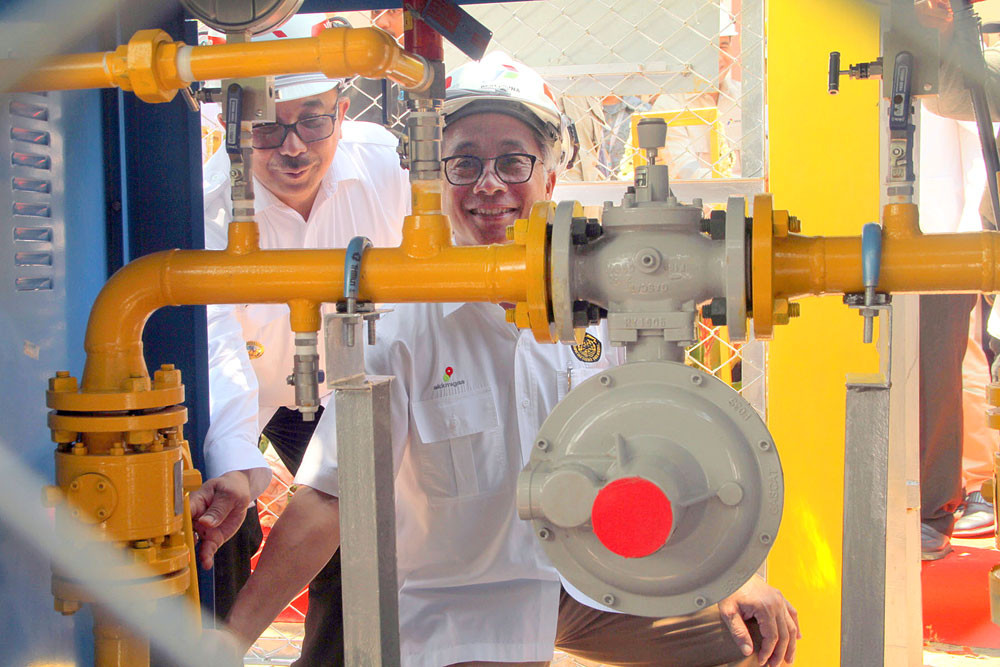Popular Reads
Top Results
Can't find what you're looking for?
View all search resultsPopular Reads
Top Results
Can't find what you're looking for?
View all search resultsOil, gas exploration counts
Consistently, low oil prices have forced oil companies to be extremely selective regarding the sites for exploration. An efficient bureaucracy is crucial especially in the oil industry, because the time lag between discovery and production is often 15 years.
Change text size
Gift Premium Articles
to Anyone
T
he government decided last week to exempt oil exploration from the land and building tax, value added tax and luxury sales tax, thereby removing one of the main barriers to investment in the hydrocarbon industry and resolving the bone of contention between the Upstream Oil and Gas Regulatory Special Task Force (SKKMigas) and members of the Indonesian Petroleum Association (IPA).
The finance ministerial regulation on the fiscal incentives also grants similar tax relief to development and production operations under certain conditions determined by the Energy and Mineral Resources Ministry. Such conditions include concessions that cannot achieve an adequate internal rate of return, located in deep-sea waters or holding reserves with high pressure, high temperatures or high impurities.
The fiscal incentives are strategic indeed because exploration is the most important aspect of developing the petroleum industry. Only by increasing proven oil and gas reserves will Indonesia be able to make its production sustainable and sufficient to meet its steadily rising consumption along with the steady expansion of its economy.
But the only way to increase proven hydrocarbon reserves is to increase investment in exploration. And the harsh reality in the industry is that Indonesian oil production has plunged from 1.2 million barrels per day (bpd) in the early 2000s to fewer than 800 bpd at present.
Unless proven reserves increase significantly, the country will run out of productive sites within the next 10 years because even now more than 60 percent of domestic fuel consumption depends on imports. Oil imports have also become the main driver of the current account deficit.
Fiscal incentives are also crucial as oil exploration in the country has become increasingly risky because most of the potential and unexplored hydrocarbon sedimentary basins are now located offshore, some in deep-sea waters in the eastern region that is acutely short of basic infrastructure. Moreover, because oil prices have been consistently below US$70 over the past four years, tax incentives become even more important to stimulate investment in the industry.
Many analysts estimate that the success rate of oil prospecting in Indonesia is quite low or less than 10 percent. Official data also shows that exploration spending has steadily declined from almost $2 billion in 2013 to below $500 million in 2018.
Consistently, low oil prices have forced oil companies to be extremely selective regarding the sites for exploration. Hence, the competition for oil investment has intensified and most countries offer not only generous tax incentives but also attractive investment conditions with regard to licensing systems and contractual terms. An efficient bureaucracy is crucial especially in the oil industry, because the time lag between discovery and production is often 15 years.
But there is a caveat to such incentives. Past experience has shown that the government tends to make administrative and oversight procedures so arduous in order to prevent misuse that the benefits of the incentives are often nullified by time-consuming red tape.










